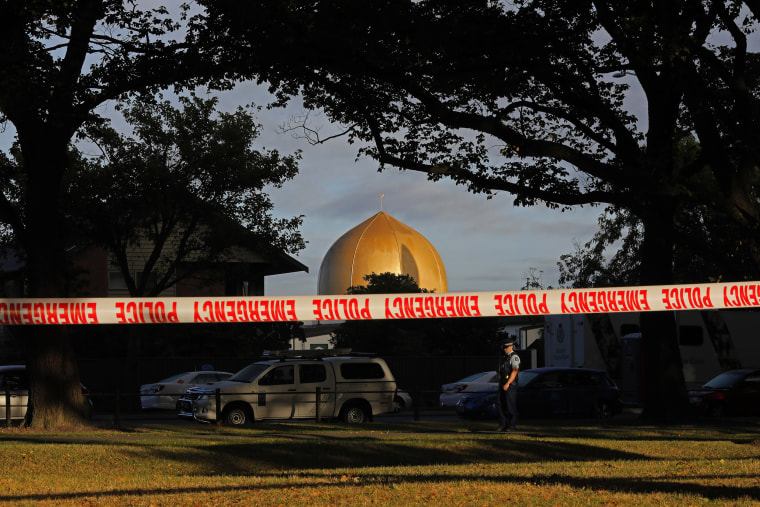LONDON — In the wake of the El Paso massacre, experts who for years have tracked Islamic extremism are describing similarities to another dangerous radical ideology: white supremacy.
“People treat white supremacy and Islamic extremism as if they are entirely different, but they are both forms of political violence,” said Colin Clarke, a senior research fellow at the Soufan Center, a security and intelligence think tank based in New York. “At the fundamental level this is about trying to convince others of your worldview through coercion to violence and terrorism.”
Investigators believe that, before the attack, the man accused of killing 22 people at a Walmart in El Paso, Texas, early Sunday posted an anti-immigrant screed on an anonymous extremist message board, citing the Christchurch, New Zealand, mosque shooter who left 51 dead in March as an inspiration.

The extreme ideologies fueling attack are part of what experts warn is a growing threat.
Of extremist killings last year, 98 percent were right-wing related, the highest percentage since 2012, said a report by the Anti-Defamation League. And right-wing extremists also killed more people in 2018 than in any year since 1995, according to the ADL.
Meanwhile, the number of hate groups in the U.S. reached a record high of 1,020 in 2018, according to the Southern Poverty Law Center.
Though their ideologies differ, white nationalism and Islamic extremism share parallels both in their origins and their motivations, experts say.
What’s more, the indoctrination of white supremacists is remarkably similar to the way that Islamic extremists are recruited and influenced, experts say.
Extremists on all sides target disenfranchised young men who have individual grievances. They then meet up in online communities and in person, encouraging each other, said Clint Watts, a former FBI agent, NBC national security analyst and a senior fellow at the Foreign Policy Research Institute, a Philadelphia-based think tank.
“It’s like a contagion,” Watts said of the white nationalist ideology.
“These guys are inspiring each other globally. They connect online, and the ideology is almost crowdsourced," he said. "Everyone is contributing to it as they perpetrate their violence, which should have everyone freaked out.”
In the years after the Sept. 11, 2001, attacks, authorities and the public focused on Islamic extremism.
However, white nationalists are in many ways more dangerous because they are more likely to travel under the radar, according to Watts. After 9/11, Americans were on the lookout for anyone resembling the attackers who looked or acted in a suspicious way.
In contrast, white supremacists attract less scrutiny.
“If a Muslim kid showed up to buy a weapon, what do you think would happen?" Watts said. "They would call the FBI."
Tackling white supremacist ideology will require similar resources and tactics as the battle against Islamic extremism, from new policies for law enforcement to better intelligence gathering, experts say.
As it is, 80 percent of field agents and analysts devoted to terrorism are working on international terrorism, including home-grown jihadi extremists, while 20 percent are working on domestic terrorism, including white supremacists, Michael McGarrity, the FBI’s counterterrorism chief, told Congress in May.
Ali Soufan, a former FBI special agent, an expert in terrorism and founder of the Soufan Center, spelled out in stark terms the gravity of the issue faced by intelligence and security services in an opinion piece in The New York Times on Monday.
He called on law enforcement, the intelligence community and courts to stop treating white supremacist extremists differently from their jihadi counterparts.
“Twenty years ago, we grossly underestimated the rising threat of Islamist terrorism,” he wrote. “That inattention cost us dearly on Sept. 11, 2001. We cannot afford to wait for the white-supremacist equivalent.”